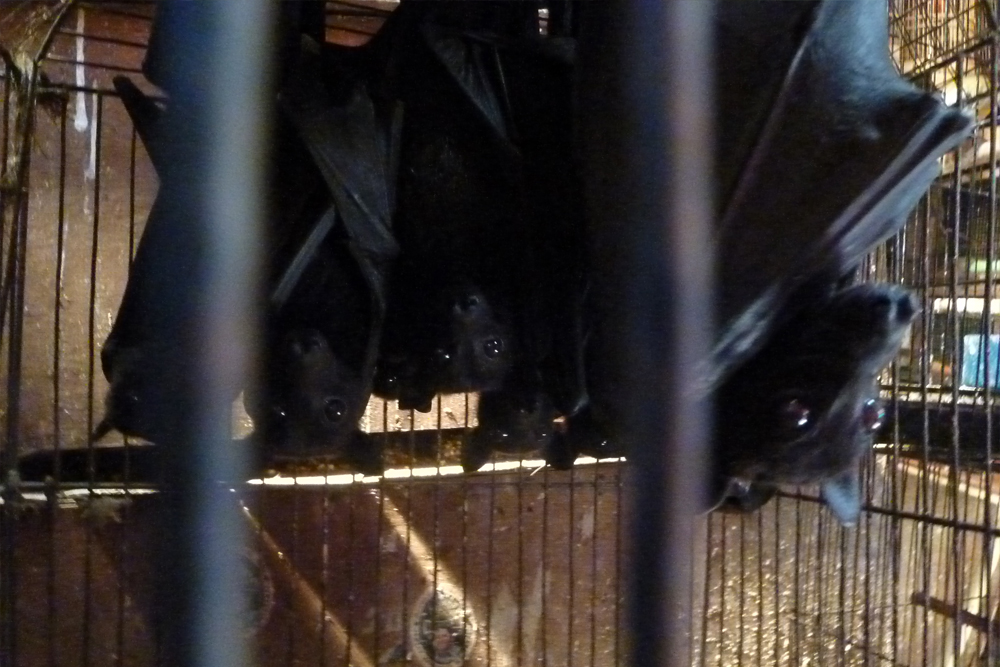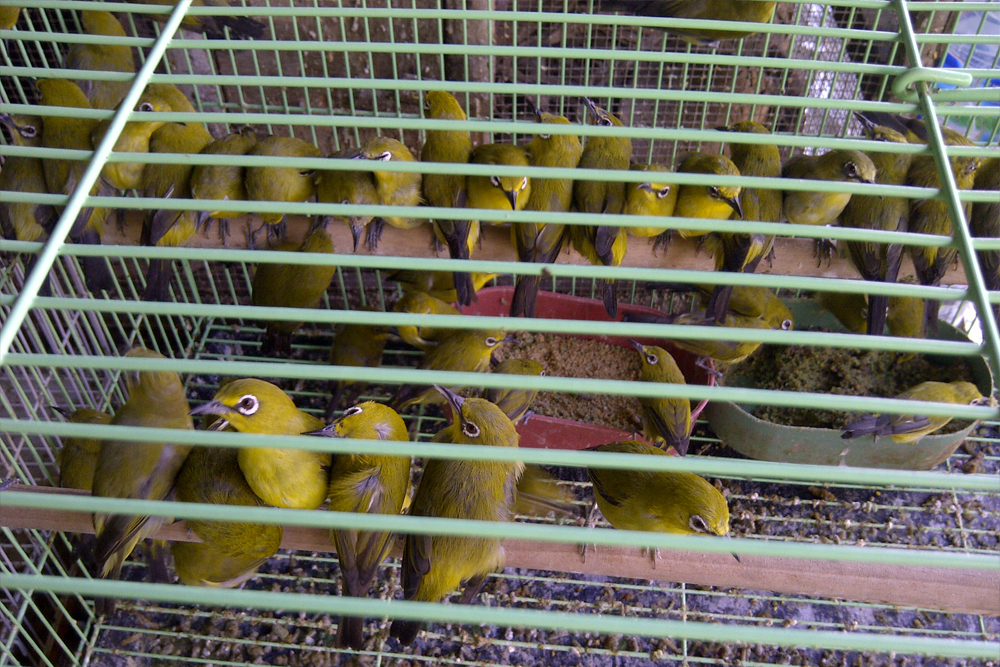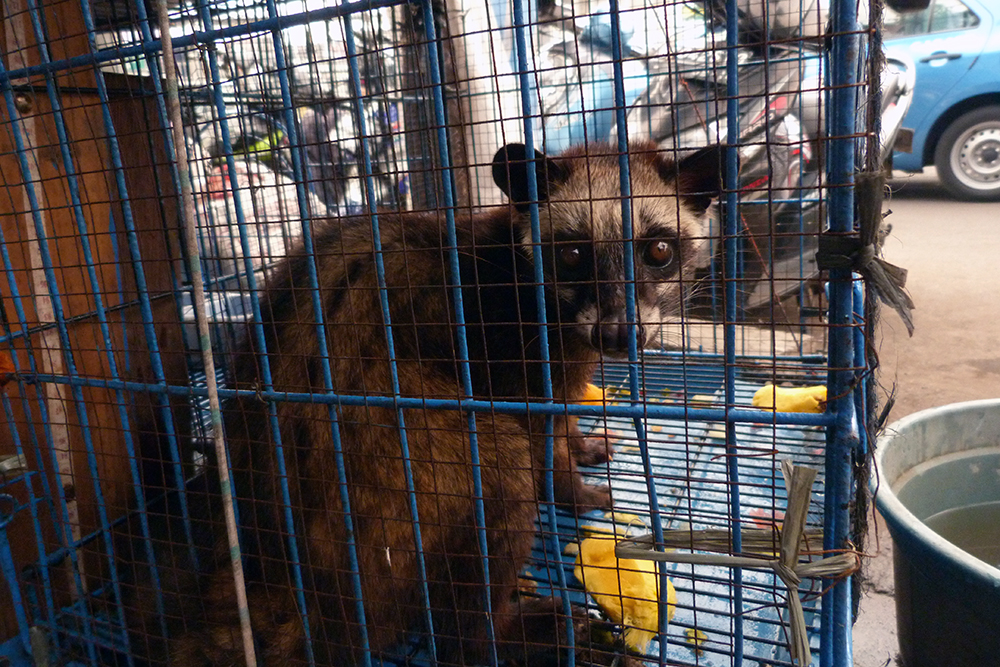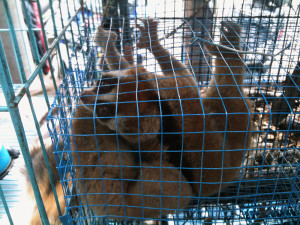The illegal wildlife trade is a major threat for many species. Almost all animals are traded, and amongst those LFP researches include birds (including owls and the impact of Harry Potter on their trade), reptiles, molluscs and mammals including slow lorises. Wildlife trade involves both live and dead specimens, and also includes products made from wild plants. This traffic of thousand of species has reached unprecedented scales, and represents more than 20 billion USD per year. Monitoring the illegal wildlife trade is a complex but necessary task.
Slow lorises are one of the world’s most traded protected mammals. They are traded as pets, tourist ‘photo props’, for traditional ‘magic’ practices, and are considered to cure over 100 diseases. Read more about some of our loris trade work here. We also conducted a major study on the impact of lorises traded as pets and exploited on online videos – this research has really helped to expose this sad trade in lorises and to change how material for example is highlighted on Instagram if you search #slowloris.
The LFP team is documenting the trade of protected species by conducting market surveys in different locations on the island of Java. We also are monitoring trade online, and help provide details on how to report this trade. The information collected is used to help law enforcement and empowerment.




